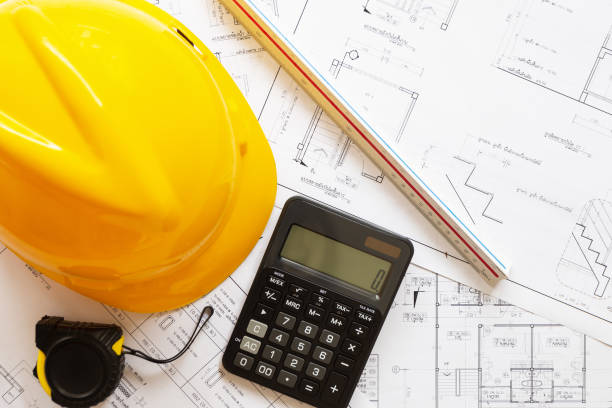
How Much Does It Cost To Start A Construction Company
Starting a construction company can be a thrilling and rewarding venture. But one crucial question looms over every aspiring entrepreneur in this field – how much does it cost to start a construction business? Whether you’re a seasoned professional or new to the construction industry, understanding the financial requirements is essential to ensuring your success.
In this comprehensive guide, we’ll walk you through the steps of starting a construction company, breaking down the various costs involved, and providing practical tips and insights to help you budget effectively. From initial investments to ongoing expenses, we’ve got you covered.
Why Start a Construction Company?
High Demand for Construction Services
The construction industry is booming. With increasing demand for residential, commercial, and infrastructure projects, there has never been a better time to start a construction company. As urbanization continues, the need for skilled contractors and builders remains high.
Potential for Profit
The potential for profitability in the construction industry is significant. With carefully managed projects and efficient operations, construction companies can achieve excellent profit margins. This potential for financial gain makes the industry attractive to many entrepreneurs.
Diverse Opportunities
Construction offers diverse opportunities, from small residential projects to large commercial developments. This diversity allows you to specialize in a niche that aligns with your skills and interests, providing both personal and professional fulfillment.
Initial Costs of Starting a Construction Company
Business Registration and Licensing
Before you can start operating, you must register your business and obtain the necessary licenses. This process varies by location but generally includes fees for incorporation, permits, and certifications. Budgeting $500 to $1,500 for these initial expenses is a good starting point.
Insurance Costs
Insurance is a non-negotiable expense in the construction industry. You’ll need general liability insurance, workers’ compensation, and possibly professional liability insurance. These costs can range from $2,000 to $10,000 annually, depending on the size and scope of your business.
Equipment and Tools
Investing in quality equipment and tools is essential. You’ll need everything from basic hand tools to heavy machinery like excavators and loaders. The cost can vary widely based on your needs, but a typical startup budget might allocate $10,000 to $50,000 for equipment.
Office Space and Administrative Costs
Renting Office Space
While some small construction companies operate from home, renting office space lends credibility and provides a professional environment for client meetings. Office rental costs can range from $500 to $2,000 per month, depending on the location and size.
Office Supplies and Furniture
Don’t overlook the costs of furnishing your office. Desks, chairs, computers, and other office supplies will be necessary. Plan to spend around $2,000 to $5,000 initially.
Software and Systems
Investing in construction management software can streamline your operations and improve efficiency. Software costs vary but budgeting $100 to $500 per month is a reasonable estimate for subscription-based services.
Staffing and Labor Costs
Hiring Skilled Labor
Your team is your most valuable asset. Hiring skilled labor, such as carpenters, electricians, and plumbers, is essential. Labor costs will depend on your location and the skill level required but expect to pay between $15 to $50 per hour for various roles.
Training and Development
Investing in your team’s training and development ensures high-quality work and safety compliance. Allocate funds for certifications, workshops, and ongoing education. An annual budget of $1,000 to $3,000 is a good starting point.
Payroll and Benefits
In addition to wages, consider payroll taxes, benefits, and other employee-related expenses. These can add an additional 20-30% to your labor costs, so plan accordingly.

Marketing and Branding Costs
Website Development
A professional website is crucial for establishing your online presence. Expect to invest $1,000 to $5,000 in website design and development, plus ongoing maintenance costs.
Marketing Campaigns
Effective marketing helps you reach potential clients. Budget for online advertising, social media campaigns, and local print ads. An initial marketing budget of $1,000 to $3,000 is a good starting point.
Branding and Signage
Professional branding, including logos and signage, creates a cohesive image for your company. Plan to spend $500 to $2,000 on these elements to establish a strong brand identity.
Permits and Legal Fees
Building Permits
Every construction project requires permits. These costs vary by location and project size but typically range from $500 to $5,000 per project. Include these expenses in your project budgets.
Legal Fees
Legal advice and services are essential, especially when drafting contracts and navigating regulations. Set aside funds for legal fees, which can range from $1,000 to $5,000 annually.
Regulatory Compliance
Compliance with industry standards and regulations is crucial. Budget for any necessary inspections, certifications, and adherence to local codes. These costs can vary widely based on your specific needs.
Financial Management and Accounting
Accounting Software
Accurate financial management is vital for your business’s success. Invest in accounting software to streamline bookkeeping, invoicing, and tax preparation. Monthly costs typically range from $50 to $200.
Professional Accounting Services
Hiring a professional accountant ensures your finances are in order and compliant with tax regulations. Annual costs for accounting services can range from $1,000 to $5,000, depending on your business’s complexity.
Budgeting and Financial Planning
Effective budgeting helps you manage cash flow and make informed decisions. Allocate time and resources to create detailed financial plans and regularly review your budget to stay on track.
Vehicle and Transportation Costs
Purchasing Vehicles
Reliable transportation is essential for moving materials and equipment to job sites. Consider purchasing trucks or vans, with costs ranging from $20,000 to $50,000 per vehicle.
Fuel and Maintenance
Ongoing fuel and maintenance costs are another consideration. Budget for regular maintenance and repairs to keep your vehicles in top condition. Monthly expenses can vary but plan for $500 to $1,500.
Vehicle Insurance
Insuring your vehicles is mandatory. Costs vary based on the type of vehicle and coverage needed but expect to pay $1,000 to $3,000 annually per vehicle.
Miscellaneous Expenses
Safety Gear and Equipment
Safety should always be a top priority. Invest in safety gear, including helmets, gloves, and vests, to protect your team. An initial budget of $1,000 to $3,000 is a good starting point.
Contingency Fund
Unexpected expenses are inevitable in the construction business. Establish a contingency fund to cover any unforeseen costs. Aiming for 5-10% of your total startup budget is a prudent approach.
Memberships and Subscriptions
Joining industry associations and subscribing to trade publications keeps you informed about industry trends and best practices. Allocate $500 to $1,000 annually for these memberships and subscriptions.
Conclusion
Starting a construction company requires careful planning and a thorough understanding of the costs involved. From initial investments to ongoing expenses, each aspect plays a vital role in your business’s success. By budgeting effectively and prioritizing essential expenditures, you can build a strong foundation for your construction company.
Investing in quality equipment, skilled labor, and effective marketing strategies will set you apart in a competitive industry. Remember, the key to success lies in meticulous planning, continuous learning, and staying adaptable to changing market conditions.
Ready to take the next step? Start budgeting for your construction company today and turn your entrepreneurial dreams into reality.
FAQs
How much does it cost to start a small construction company?
Starting a small construction company typically requires an initial investment of $50,000 to $150,000, depending on location, scale, and specific needs.
What are the ongoing expenses for a construction company?
Ongoing expenses include labor costs, insurance, equipment maintenance, marketing, office rent, and administrative costs. Proper budgeting and financial management are essential.
Is it profitable to start a construction company?
Yes, with effective management and a strong focus on quality and customer satisfaction, a construction company can be highly profitable.
What licenses are required to start a construction company?
Licensing requirements vary by location but generally include a business license, contractor’s license, and specific permits for different types of construction work.
How can I finance my construction startup?
You can finance your construction startup through personal savings, bank loans, investor funding, or small business grants. Each option has its pros and cons, so choose the best fit for your situation.

